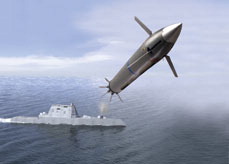WASHINGTON — With flu season already under way, a top Tricare military health plan official encourages the system’s almost 9.7 million beneficiaries to get their flu shots as early as possible at a military medical facility or network provider, or — in an increasingly popular option — at any participating pharmacy.
Military hospitals and clinics and Tricare network providers are stocked with this year’s flu vaccine, ready to administer them now, Navy Rear Adm. Christine S. Hunter, deputy director for the Tricare Management Activity, told American Forces Press Service.
It’s available to every Tricare beneficiary over 6 months old, with no copayment or preauthorization required, even for people enrolled in programs that typically require one, she said.
“We want you to get the shot,” Hunter emphasized, calling flu shots “an essential preventive service.” Nine out of 10 healthy people who get the shot won’t get the flu, according to the Centers for Disease Control and Prevention.
Unlike last year, when people needed two vaccines — a conventional flu shot and another developed specifically for the H1N1 virus — one shot will suffice this year, Hunter noted. Its formulation covers two of the most common seasonal influenza strains, A H3N2 and B virus, as well as H1N1.
Although the flu typically doesn’t hit some regions for another few months, research shows it’s better to get the vaccine early, preferably by mid-October.
Last year, for example, when manufacturing shortages delayed flu shots for Tricare beneficiaries along with the general population, 486,000 Tricare beneficiaries who hadn’t been immunized developed flu symptoms before Nov. 1.
“We went back and looked at our data and realized that if we had been able to get everyone immunized in October rather than later in the year, we would have prevented almost 500,000 people from getting sick,” Hunter said. Not all required a doctor’s care and most didn’t experience any serious complications, she said, but almost all could have avoided the flu if the vaccine had been available sooner.
“This year, there is no delay in the distribution of the shots,” Hunter said. “You can get it now. It’s available in military hospitals and clinics and through Tricare now. So we would like to encourage people to get it now.”
To make that as convenient as possible, Tricare has entered into agreements with about 50,000 retail pharmacies nationwide. Like military hospitals and clinics and Tricare network providers, they will administer the flu shot at no cost to Tricare beneficiaries.
Many of the retail pharmacies offer flu shots at night and on weekends, and most don’t require appointments.
Tricare introduced the pharmacy option during last year’s flu season, and Hunter said she hopes more people will take advantage of it this year as they learn about the program.
“People really value convenience in their health care,” she said. “This is part of a campaign to bring preventive care as close to where people live and work as possible.”
The Tricare website lists participating pharmacies, with a locator button identifying the closest one, based on the beneficiary’s ZIP code.
While encouraging people to get their flu shot wherever it’s most convenient, Hunter emphasized that some Tricare beneficiaries should consult their medical provider first. These include people with a serious chronic illness, young children who have never had a flu shot and other at-risk groups.
Retail pharmacies will administer flu shots to active-duty military members and can provide documentation for their official shot records.
However, Hunter recognized that some servicemembers may be required to get their shots along with the rest of the members of their units. That way, she explained, the information is recorded immediately in unit shot records, with no delay.
In addition to getting a flu shot, CDC officials offer additional tips for avoiding the flu and its spread:
— Cover your nose and mouth with a tissue when you cough or sneeze. Throw the tissue in the trash after you use it.
— Wash your hands often with soap and water, especially after you cough or sneeze. You also can use an alcohol-based hand cleaner.
— Avoid touching your eyes, nose or mouth. Germs spread this way.
— Try to avoid close contact with sick people.
— Stay home if you are sick until at least 24 hours after you no longer have a fever — 100 degrees Fahrenheit or 37.8 degrees Celsius — or signs of a fever without the use of a fever-reducing medicine such as acetaminophen.
— While sick, limit contact with others as much as possible to keep from infecting them.
Source:
U.S. Department of Defense
Office of the Assistant Secretary of Defense (Public Affairs)

 von
von 